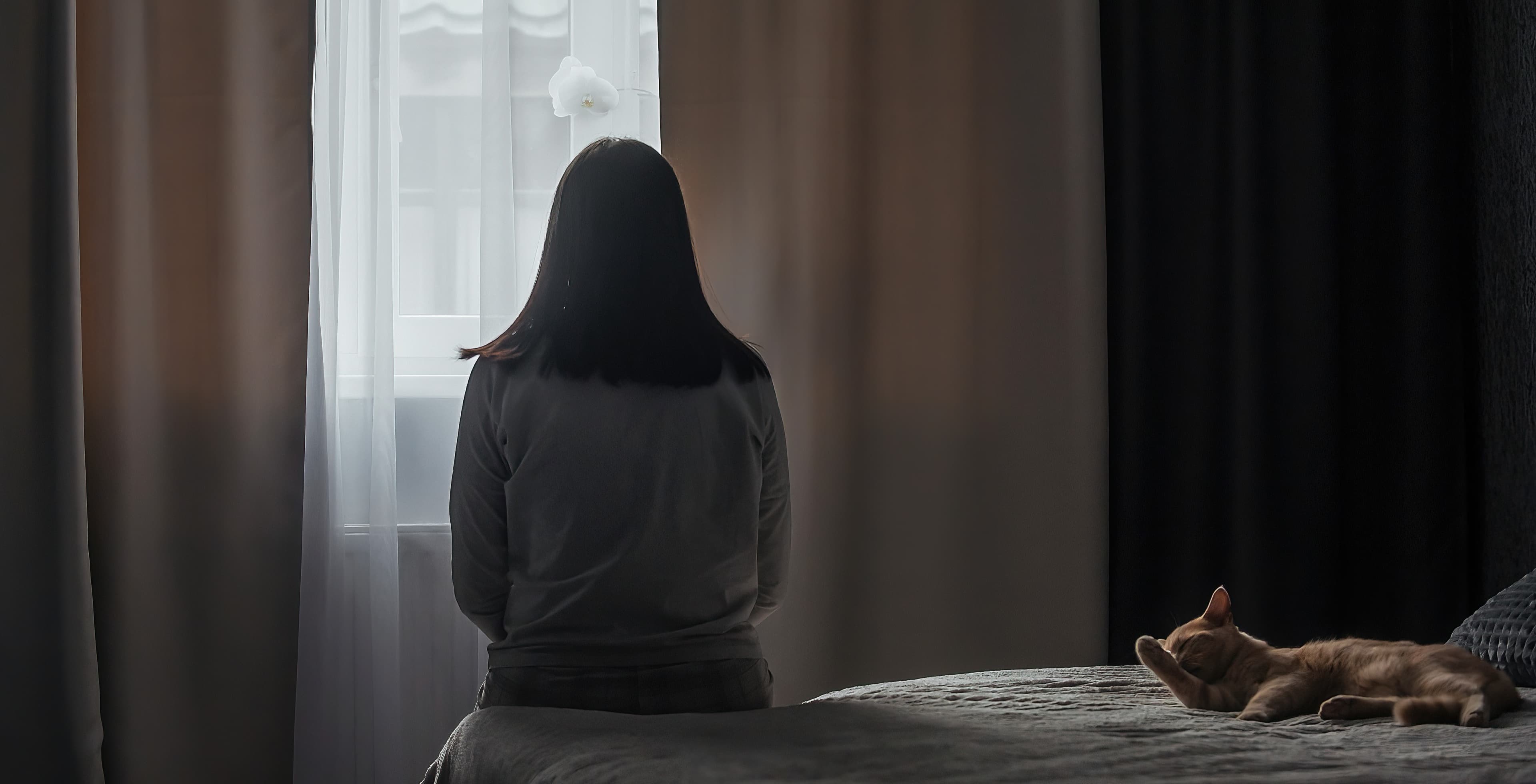Managing Stress From COVID-19

5 Minutes

Team Curative

Jan 14, 2021
After nearly one year navigating the COVID-19 pandemic, most people have experienced increased stress in one form or another. According to a December 2020 poll by the Kaiser Family Foundation, roughly 10 months after COVID-19 began spreading through the country, 51 percent of adults in the United States say worry or stress related to the pandemic has had a negative impact on their mental health, including one in four adults experiencing significant impact.
Whether it’s stress around personal finances, the economy, one’s own health or that of loved ones, or the change in average social interactions and daily life, this blog post will discuss ways to cope with stress from the COVID-19 pandemic.
Natural Reactions to Stress
One of the many lessons this pandemic has taught us is that everyone reacts differently to stress. Many factors can influence how we respond to stress, such as our background, financial situation, support from friends and family, overall health, emotional history, and where we live. Stressful moments, especially related to COVID-19, can cause:
Changes in sleep patterns, such as having difficulties falling or staying asleep.
Alterations in eating patterns, such as overeating.
Excessive fear and worry about one’s health and the health of loved ones.
Excessive worry about the country’s financial and employment situation and its impact on our own life.
Fear of losing support services we count on.
An increase in using tobacco, alcohol, and other substances.
A decrease in mental health, and worsening in those with a preexisting mental health condition.
A decrease in overall health, and worsening in those with a chronic health condition.
Ways to Manage COVID-19 Stress
Adjusting to this new normal hasn’t been easy. Experiencing fear, worry, anxiety, sadness, and loneliness because of the COVID-19 pandemic is natural and common, especially during the holiday season. This is a time of year when many of us typically gather with family and friends. Nevertheless, finding alternative ways to maintain social connections, avoid isolation, and take care of our mental, physical, and emotional health is essential.
Make a plan.
If you’re infected or concerned about getting the virus, it’s important to know exactly what to do. To be prepared ahead of time, find out where and how to get treated and gather information about other support resources and services you might need, such as counseling or therapy. (You don’t need to be present in person to receive these services; many telehealth services are available, especially now.) Simply having a plan can help to relieve the “what if” mentality as you create a list of concrete steps you can follow should you feel your mental and/or physical health decline.
Take care of your emotional health.
Prioritize your emotional well-being so you can think clearly and react to critical needs to protect yourself and your loved ones.
Take breaks from the news.
Stay informed, but don’t feel the need to saturate yourself with COVID-19 news. Exposure to constant information about the pandemic can be upsetting and overwhelming. Health experts recommend taking regular breaks from watching, listening, and reading about COVID-19 from traditional news sources as well as social media.
Take care of your physical health.
Deep breathing, stretching, and meditation can help release stress. Regular exercise not only helps you blow off some steam but also helps keep your body healthy and strengthen your immune system’s response to infections and diseases. Your diet can also influence your immune system as well as your mental health, so focus on healthy, well-balanced meals and frequent hydration to support your immune system and overall health.
Get enough sleep.
Don’t underestimate the power of rest and relaxation. Aim to get seven to eight hours of restful sleep, because when your body is well rested you can better fight potential oncoming infection.
Choose healthy activities.
Rather than turning to substances, choose other activities and hobbies you enjoy to help you cope with stress. Some ideas include:
Playing an instrument
Listening to music
Watching a favorite movie
Crafting
Baking
Going for a walk
Being out in nature
Taking up a new hobby
Calling a friend or family member
Hosting a video date
Practicing yoga
Meditating
Maintain social connections.
Talk regularly to people you trust about your feelings and concerns. Connect with your community or with faith-based organizations to help you avoid feeling alone and stressed. Use social media, email, phone calls, and video chats to stay connected with your support network.
Getting Through the COVID-19 Pandemic
Feeling heightened stress is normal and quite understandable due to the uncertainty and challenges of the past year. We’ve sacrificed a lot this year, whether as a result of physically distancing from others, the loss of loved ones, significant changes in our daily lives, or disrupted plans caused by business closures and travel restrictions. We’re all concerned about our health and safety and that of our loved ones.
However, it’s important to remember that stress comes and goes. In this situation, it’s completely natural and only temporary, as this pandemic will eventually end. Scientists are learning more every day about how to effectively fight this virus and multiple effective vaccines are already being distributed. Taking care of your well-being in times like these is crucial to reduce stress, support the immune system, keep calm and overcome adversity in the middle of this pandemic. We hope this blog post helped shed light ways to help you reduce stress, support a healthy body, and take care of your emotional needs while we all work together to end the COVID-19 pandemic.
Curative Inc. and its subsidiary, Curative Management Services LLC, engage with medical entities that provide vaccination services.
Sign up for our Newsletter
Table of Contents
Natural Reactions to Stress
Ways to Manage COVID-19 Stress
Getting Through the COVID-19 Pandemic








